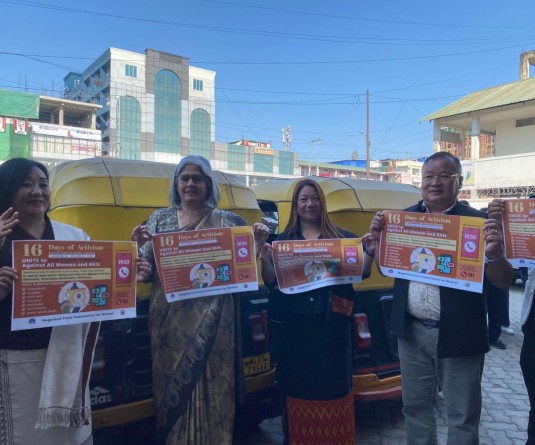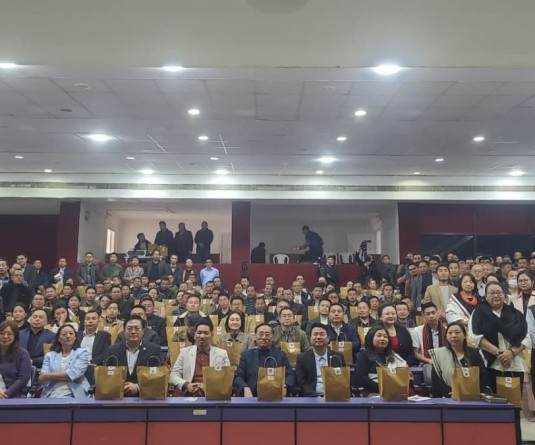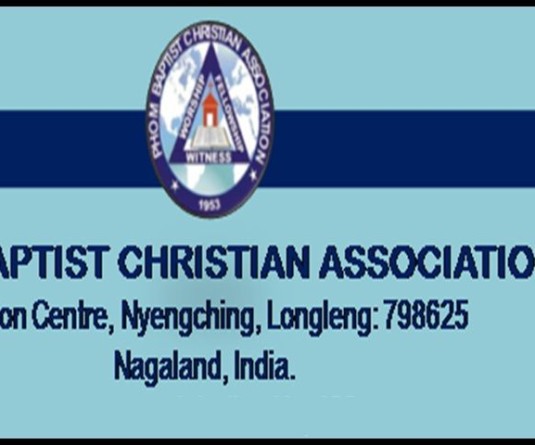
NSF conducts seminar on how to improvise current system of education in Nagaland
Morung Express News
Kohima | July 12
Realizing the dire need to improvise the current system of education in Nagaland, the Naga Students’ Federation (NSF) held a one-day seminar on July 12 on the education system in Nagaland under the theme, “Generating improvement through research and development in educational system in Nagaland.”
The seminar, which was held at Hotel Japfü, Kohima focused on the secondary education and degree courses with resource persons from educational institutions and academicians deliberating on the topic with paper presentations.
Dr Bendangyapangla, Principal-in-Charge, State College of Teachers Education (SCTE) said Continuous and Comprehensive Evaluation (CCE) needs to be implemented in true spirit while the system of management should be decentralized by giving community responsibility in management.
Further, Dr Bendangyangla emphasized that the contents of the curriculum should be made relevant to the socio-cultural, politico-historical, and geographical context of the learners while the evaluation should focus on “how learning takes place.”
Positing that the educational system has to be focused on the viable resources available in Nagaland such as agriculture, horticulture, forestry, animal husbandry, and human resource, Pheluopfelie Kesiezie, Administrator at Northfield School viewed that focusing on these areas will curb the issue of unemployment in Nagaland. He also remarked that the best nation to emulate is Israel whose main resources are agriculture, horticulture and human resources, and whose progressive developments have been created within a limited space.
“We may not be able to produce infrastructure but we can produce human capital. For this to happen, the State has to open technical institutions. We have school of agriculture, a tool room and a handful of polytechnic schools. However, we must talk in terms of hundreds. These technical institutes should be within the ambit of the viable sectors,” asserted Kesiezie.
While expressing the need for Nagas to learn to critique and appreciate their own culture, Dr Venusa Tinyi, Assistant Professor, University of Hyderabad suggested for this to be translated into literary forms for studies. “Without sufficient materials for critiquing and reflection in the form of literature, we can’t progress much, we can’t produce authentic intellectuals. We need text, a rich text, in order to make intellectual discussion possible.”
When there is so much in our culture and tradition, why try to borrow from others to shape and guide our lives,” Tinyi told the gathering. He further remarked that failure to address this issue would result in the bankruptcy of intellectuals, which is necessary to make transformation of culture possible.
Without the platform and required resource to critique one’s own culture, Tinyi pointed out, “a society faces the danger of not only breeding dogmatic and tribalistic mindset but also a culture of intolerance and racism.”
Research Scholar Lakpachui Siro stressed on the importance of ancestral ways of imparting education to children.
“It is very important to learn the knowledge of the world but can we afford to neglect to know our own people, geography, environment, history and culture? Are we putting in efforts to push our own space in the educational curriculum?” Siro asked. “The more educated, we are distancing ourselves further. This could be because of the fact that all we keep learning is about everything except for our own.”
Discussions and questions were further raised after the presentation of papers. Short presentations were delivered by Rangumbuing Nsarangbe, controller of examination, Nagaland Board of School Education and Dr Abemo, controller of examination, Nagaland University.






